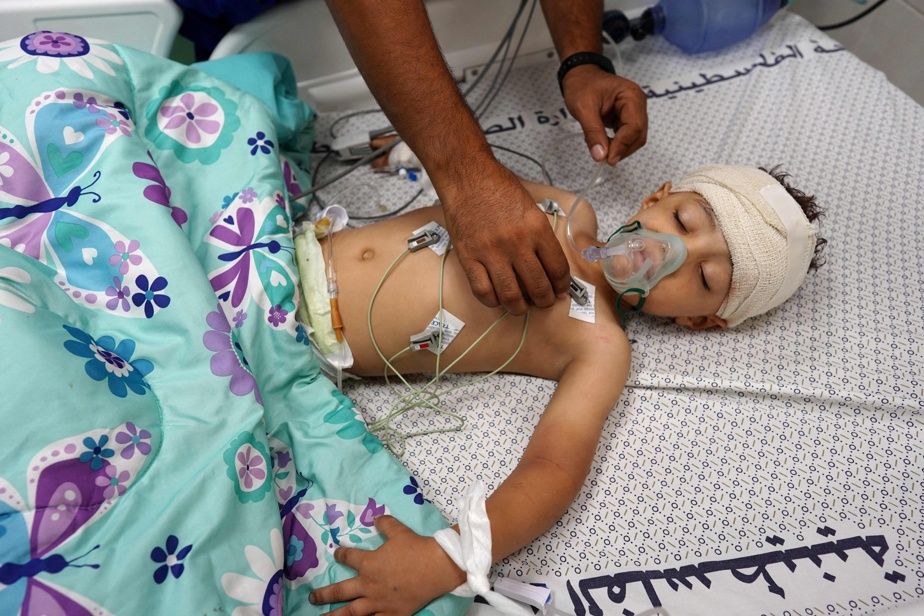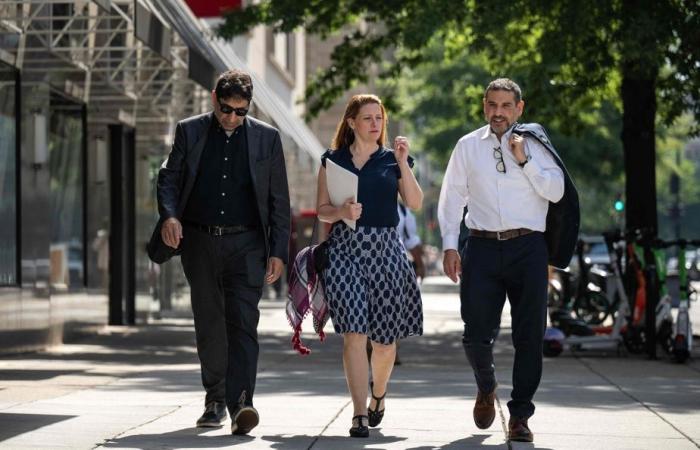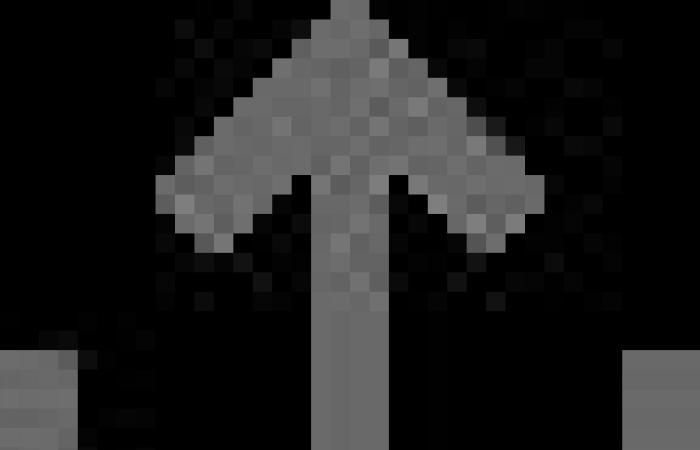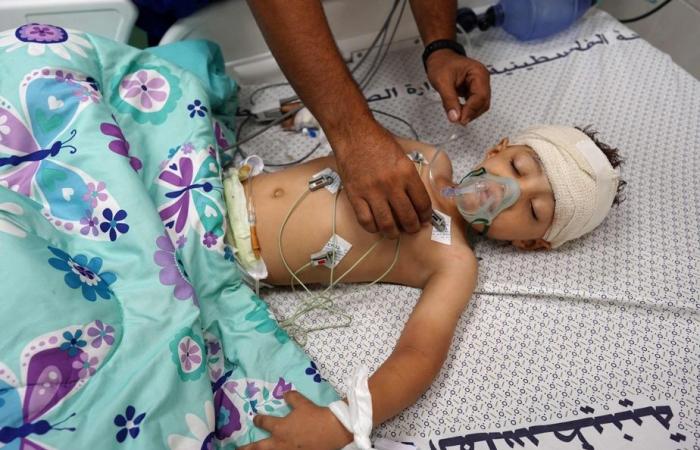(Washington) In the few hospitals still standing in Gaza, many patients who survived Israeli bombings must be subscribed or die from infections due to the lack of simple gloves, masks or soap, say American caregivers returning from the Palestinian territory.
Posted at 11:32 p.m.
Issam AHMED
France Media Agency
Heartbreaking decisions must be made, like stopping treating a seven-year-old boy’s severe burns because the bandages are missing and he’s likely to die anyway.
These American doctors and nurses have witnessed horrors and have now made it their mission to make it known in order to put pressure on their country, a major military and diplomatic supporter of Israel.
Over the past three decades, Adam Hamawy has visited war-torn countries and natural disasters, from the siege of Sarajevo to the earthquake in Haiti.
PHOTO BASHAR TALEB, AGENCE FRANCE-PRESSE
A 9-year-old girl injured by an Israeli strike is treated in a hospital in Deir el-Balah, in the Gaza Strip, on June 22.
“But I have never seen so many civilian casualties,” said this former US army combat surgeon, in an interview with AFP after returning from a mission to the European Hospital in Gaza last month. last.
“Most of our patients were children under the age of 14,” says the 54-year-old surgeon from New Jersey.
“Whether there is a ceasefire or not, we need to get humanitarian aid. And in sufficient quantity to meet demand,” insists Adam Hamawy.
“You can make all the donations you want, but if the borders are not open to allow aid to come in, there is no point,” he laments.
“Worms in wounds”
He and other caregivers said they now feel more useful in pushing for an end to the war and for Israel to comply with international law by allowing more aid into the besieged Gaza Strip.

PHOTO BASHAR TALEB, AGENCE FRANCE-PRESSE
A four-year-old boy receives medical treatment at Nasser Hospital in Khan Yunis, Gaza Strip on June 19.
Israel has rejected these accusations from the international community since the start of the war, launched after the unprecedented attack perpetrated on its soil by Hamas on October 7.
Originally from Portland, in the northwest of the United States, Monica Johnston, a 44-year-old intensive care nurse, says she has passed lists of desperately needed equipment to White House officials and elected officials.
Gaza was his first mission.
“I don’t watch the news, I don’t participate in anything political,” she says. But last fall, she received an email from an association calling for help. “When I hear the word ‘help,’ my ears open, my heart starts beating, and I feel like I have to do it. »
A team of 19 people, coordinated by the American-Palestinian Medical Association, left with packed suitcases.
On the ground, the obstacles are considerable: lack of personnel, serious shortage of medicines and basic hygiene products.
Monica Johnston’s voice cracks when she remembers the little boy whose burns had to be stopped to treat patients with a better chance of survival.
“Two days later, he started to have worms in his wounds. The feeling of guilt, that I caused this…” she whispers. The child was buried with his bandages, his body completely infested.
« Important »
Entire families often arrived together after bombings, with several generations often living in the same building, reports Ammar Ghanem, a 54-year-old emergency room doctor from Michigan.
For example, a cheerful 12-year-old boy who used to help out at the hospital, attracting the admiration of the staff, suddenly disappeared for several days.
Upon his return, Ammar Ghanem learned that thirty members of the boy’s family had been killed in a bombing and that he had had to help find their bodies in the rubble.
The launch of ground operations in early May in Rafah, on the southern border with Egypt, caused a shock wave at the hospital among Palestinian caregivers, haunted by the memory of the devastating Israeli incursion into northern Gaza.
Since their return, American caregivers have faced survivor’s guilt while thinking of their patients and colleagues left in what the international community describes as “hell” in Gaza.
“What reassures me is feeling useful by telling what I witnessed,” says Adam Hamawy. “I think it’s as important as what we did there. »








